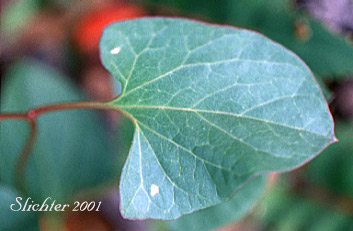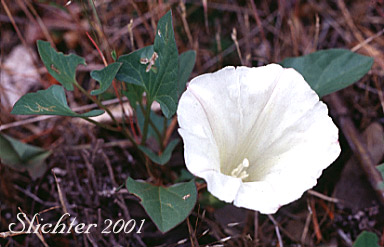 Characteristics:
Characteristics:
Night-blooming morning glory is a fairly attractive wildflower which is less invasive than it's "weedy" relatives. Its stems are either semierect, reaching heights from 10-30 cm high or may be trailing and 20-60 cm long. The simple leaves have thick, fleshy blades which are arrowhead- to heart-shaped and measuring 3-5 cm long with pointed to rounded tips. The petiles range from shorter than the blades to 2-3 times longer.
The flowers are are large (3-5 cm long) and showy and funnel-shaped as in other morning glorys. The corolla ranges from white to pinkish-tinged and pedicels shorter than to as long as the leaves. The thin sepals are 12-15 mm long. The stigmas are elliptic-lanceolate in shape and flattened.
Night-blooming morning glory may be found on rocky open ground or on open, lightlywooded or brushy slopes.
Night-blooming morning glory may be found from mt. Adams in the southern Washington Cascades south through the willamette Valley, Coast Range, and Cascades to the northern Sierra Nevada and Lake County, California.
In the Columbia River Gorge it may be found between the elevations of 2400'-3600' between Wind Mt. and Monte Carlo (to the west of the White Salmon River.
